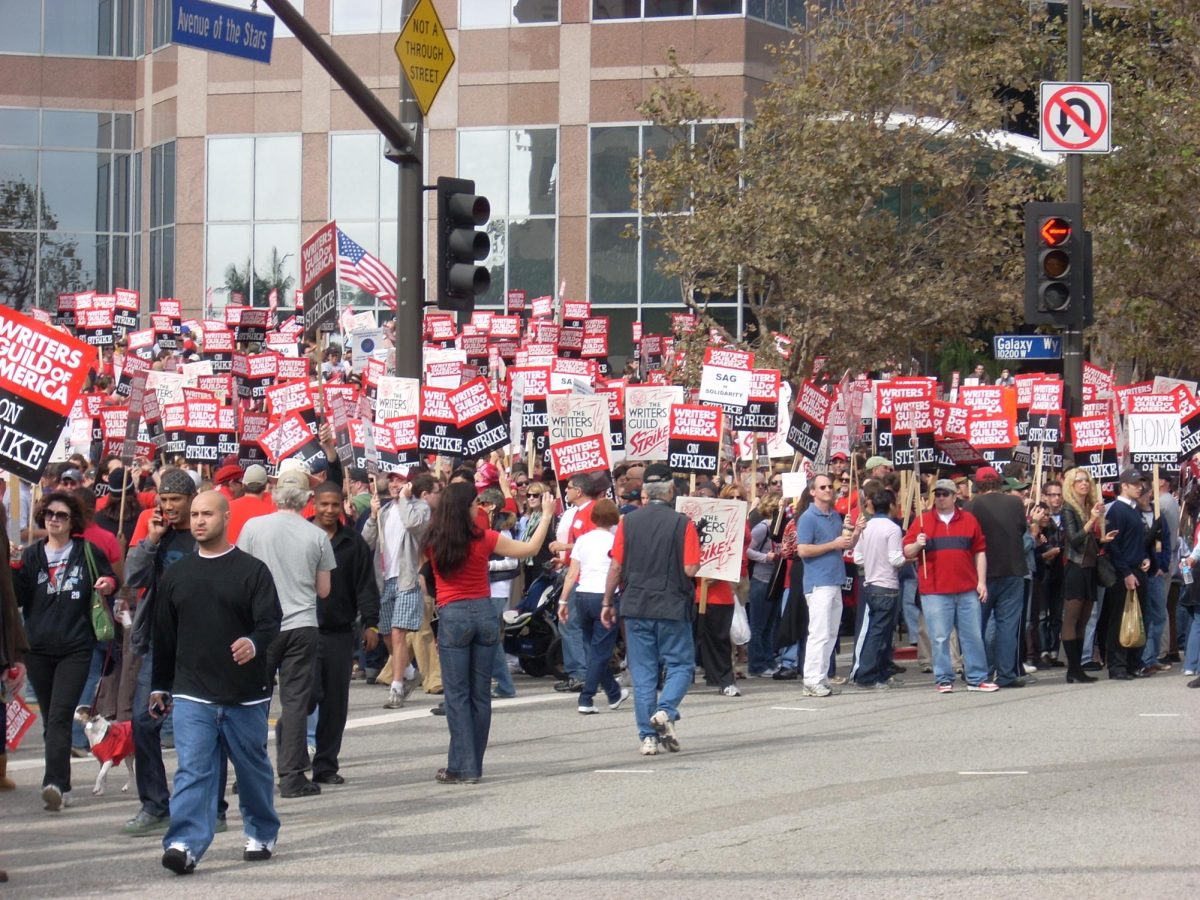Studios need to fairly compensate actors and writers because they are the backbone of the entertainment industry. Creatives maintain audiences’ interest and should not be struggling to make ends meet because of greedy studios who do not recognize their efforts.
On July 14, SAG-AFTRA, the Screen Actors Guild – American Federation of Television and Radio Artists, announced that were going on strike. More than 160,000 members are joining the WGA – Writers Guild of America, which has been on strike since early May.
Initially, WGA went on strike after they failed to renegotiate a fair contract with studios. Before the days of streaming, writers made a living through residual payments, where they were compensated runs of a piece of media.
With the rise of streaming platforms, the Alliance of Motion Picture and Television Producers began paying writers a set fee for their work. They were not paid more depending on viewership numbers or how many times audiences revisited that piece of media on the platform.
The SAG-AFTRA strike argues that their contract is set up to accommodate network and cable television and that it no longer accounts for how most audiences consume media.
Additionally, streaming companies are condensing writers’ rooms, making teams smaller leading to shorter TV seasons as evidenced by Netflix’s typical 10-episode season.
There is a necessary change that needs to take place to reflect the transition into modern ways of creating and distributing media.
Quinta Brunson, star and creator of “Abbott Elementary” said, “We’re working towards this being over, we’re working towards getting better pay, better living arrangements — people need to live, people need sustenance, they need to be able to pay their rent, to pay for food.”
When pay rates are low, young creatives face greater difficulty in gaining the necessary experience to be promoted to a higher paying position.
Low pay and limited healthcare create a barrier to young people who are entering the entertainment industry. Only 15% of actors qualify for health insurance because they must make under $26,000 annually.
“I was on a television show called “Gilmore Girls” for a long time that has brought in massive profits for Netflix. It has been one of their most popular shows for a very long time, over a decade. It gets streamed over and over and over again, and I see almost none of the revenue that comes into that,” actor Sean Gunn said while striking.
These strikes have made Hollywood come to a complete stop. SAG-AFTRA actors and writers are not allowed to take new projects or promote anything slated to come out.
The cast of the highly anticipated Christopher Nolan film “Oppenheimer” walked out of their premiere in support of the strike. Additionally, TV shows like “Stranger Things” and “Euphoria” have halted production.
Audiences will start to feel the impact of the strikes through the inevitable content drought that will come when everything that has been planned to come out does.
In 2022, Reed Hastings, co-founder and former CEO of Netflix and Ted Sarandos, Chief Content Officer of Netflix, saw a total annual pay of $50 million each, according to Variety.
The fact that these professionals do not agree to the demands of their actors and writers, who are responsible for the streaming platform’s popularity, is incredibly selfish.
The idea of the “struggling artist” is outdated, people need to be compensated for their creativity and hard work.
Audiences can support their favorite actors and writers with the list of funds, Business Insider outlined. It will help actors and writers pay for necessities while they are on strike.
Students can get involved by voicing their support on social media.






